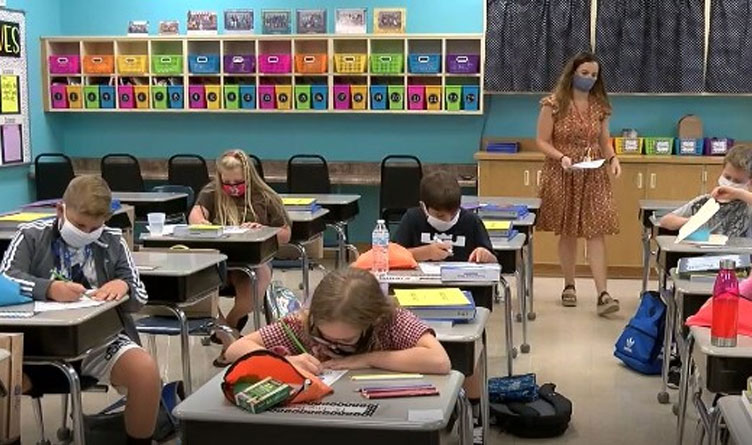Photo Credit: CC
RealClearWire [by Susan Pendergrass] –
Parents hoped they could safely send their children back to school this fall. The delta variant of COVID-19 has dashed that hope. What’s worse, families have found themselves thrust into a war over face masks.
Those who don’t want their children to be forced to wear masks all day might reside in districts with mask mandates. Those who are worried about their children being around unmasked and unvaccinated children are just as likely to wind up in mask-optional districts. School board meetings across the nation are erupting into shouting matches, parents are protesting, and many are likely to simply withdraw from public education.
The mask war has yet again highlighted the folly of assigning children to schools based on their address. According to the National Household Education Survey (NHES) administered every other year by the U.S. Department of Education, just 69 percent of K-12 students attended their assigned public school in 2016 – before anyone knew of the havoc a pandemic could wreak. As that percentage continues to creep down, the powers that be are clinging to an antiquated system of drawing circles around buildings to determine where and how children are educated … but they’re losing their grip.
We know that in the last year the number of children who are homeschooling has roughly tripled and may be as high as five million students. We also know, anecdotally, that parents have pulled their children out of virtual-only public schools and enrolled them in in-person private schools over the past year. Disturbingly, the national nonprofit Bellwether Education Partners estimates that as many as three million students have simply disappeared from enrollment lists, with spring 2020 as the last time they were connected to formal education.
It’s clear that parents want and need options for their children’s education. Ideally, they would have multiple choices, but the real rub is when they have no choice at all. Government can ignore that fact, exacerbating the challenges that parents already face. Or, they can try to help families by letting parents make choices. Two states – Florida and Arizona – have recognized the urgency of the present situation and are making publicly funded scholarships available to parents who are strongly at odds with their district’s masking policy. Missouri should use a portion of their nearly $3 billion in federal education stimulus funding to do the same.
Eventually, the Mask Wars are going to end. They will join the virtual-only wars of last year, the math wars, the civics curriculum wars, and the phonics wars as proof that one size does not fit all when it comes to the education of children. And the fights needn’t be over big, contentious issues. There’s the “my child is overwhelmed by the size of the school” battle, the “my child is underwhelmed by the difficulty of the material” battle, the “my child’s school is unable to meet the terms of their IEP” battle, or the “my child is being bullied and no one cares” battle.
Has COVID-19 created a watershed moment for parental choice in education? I think it’s entirely possible. Seven new school choice programs, including one in Missouri, were enacted last year and 21 were expanded, making more than 3.5 million students newly eligible to participate.
*** Click Here to Support Conservative Journalism in Tennessee. We can’t bring you great Editorials like this without your support!***
And now the mask moment has arrived. This is about more than education – it’s about health, safety, and overall well-being. Parents are getting fed up with being told that those who are in charge – the experts – know what’s best for their children. I’ve always said that parents are a group you do not want to upset because they will mobilize. My hope is that they do so, and across the socioeconomic spectrum, not just those in the worst schools. This affects all children in all types of communities.
It’s time to look beyond the system of education that was designed in the 1950s – assignment based on address, property values based on perceived school quality, and private schools only for those who can afford them. It’s time to give families a portfolio of education options from which to choose so that every school-age child can maximize their opportunities.
About the Author: Susan Pendergrass is the director of research and education policy at the Show-Me Institute.





